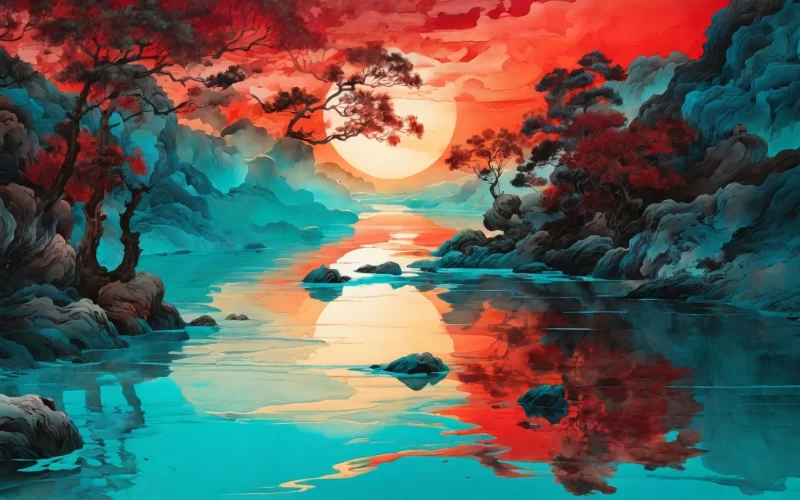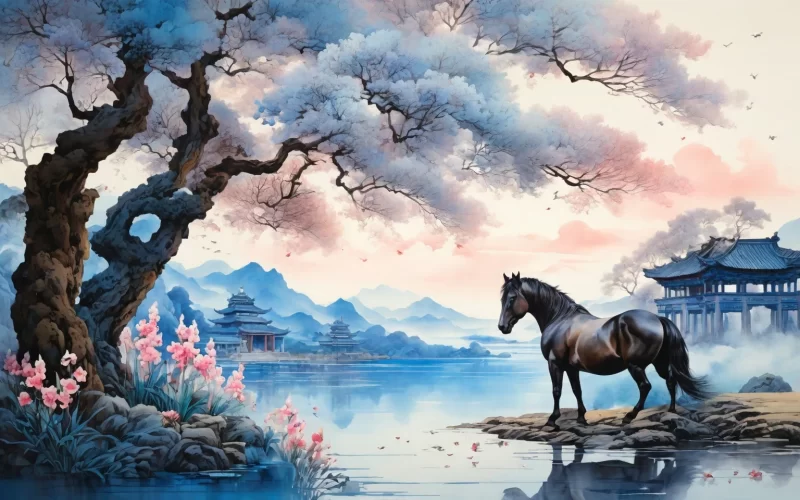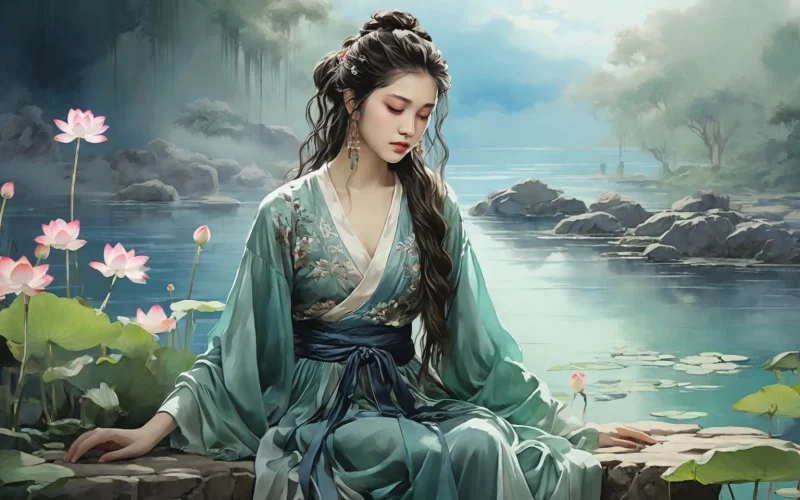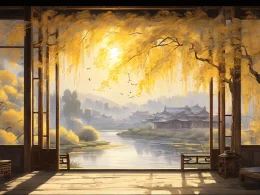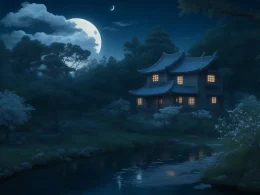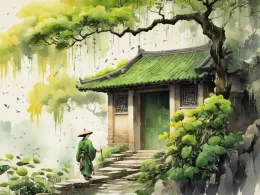The departing sunbeams pave a way on the river;
Half of its waves turn red and the other half shiver.
How I love the third night of the ninth moon aglow!
The dewdrops look like pearls, the crescent like a bow.
Original Poem:
「暮江吟」
白居易
一道残阳铺水中,半江瑟瑟半江红。
可怜九月初三夜,露似真珠月似弓。
Interpretation:
This poem was written before Bai Juyi became the Governor of Hangzhou, around the second year of Changqing (822). At that time, he passed through Hangzhou and stood by the river, where the beautiful scenery before him touched his soul. Through this poem, the poet expresses his love for nature and the tranquility and harmony he feels in the peaceful natural environment.
First couplet:“一道残阳铺水中,半江瑟瑟半江红。”
The setting sun reflects on the river, casting its golden light, and the water is divided into two parts—one part dark blue and the other a brilliant red.
This couplet contrasts the "setting sun" and the "river water," creating a tranquil and warm atmosphere. The poet uses "stretches" to describe the gentle, soothing light of the sunset, conveying the warmth and comfort of autumn. The varying colors of the river’s surface show the ever-changing beauty of nature as it reflects the setting sun.
Second couplet:“可怜九月初三夜,露似真珠月似弓。”
The night of the third day of September is so beautiful, with dew shining like pearls and the crescent moon hanging like a bow in the sky.
This couplet describes the beauty of an early autumn night. By using metaphors of "dew" and "crescent moon," the poet shows the fresh, serene atmosphere of the night. The dew sparkles like pearls under the cool moonlight, and the crescent moon hangs in the sky like a bow, giving a sense of peace and harmony.
Writing Features:
- Vivid Metaphors: The poem uses vivid metaphors such as "the setting sun stretches across the water," "dew like pearls," and "the moon like a bow," which enhance the beauty of the poem by precisely depicting visual imagery.
- Harmonious Imagery: The objects described in the poem complement each other, from the sunset reflecting on the river to the rising moon and the dew, forming a harmonious natural scene that reveals the poet’s deep affection for nature.
- Passage of Time: By mentioning "the third night of September," the poet naturally transitions from the evening sunset to the moon and dew in the night, showcasing his capturing and cherishing of all the beautiful sights in this process.
Overall Appreciation:
In this poem, Bai Juyi expresses his love and appreciation for the autumn night through delicate natural descriptions. From "setting sun" to "dark blue" and "red" to "pearls" and "bow," these images progress in layers, revealing the fleeting changes in nature’s beauty. The poet cleverly integrates his inner emotions, expressing his boundless love and reverence for nature. The poem’s flowing language and strong visual imagery immerse the reader in the scene.
Insights:
This poem reminds us to cherish every moment of nature and to appreciate the fleeting beautiful moments in life. Whether it’s the glow of the sunset or the morning dew, these little moments of happiness in life are worth observing and experiencing with care. Through the portrayal of this natural scene, the poet calls for us to enjoy the peaceful beauty of life and appreciate the harmony and beauty found in the passing of time.
Poem translator:
Xu Yuan-chong (许渊冲)
About the poet:

Bai Juyi (白居易), 772-846 AD, was originally from Taiyuan, then moved to Weinan in Shaanxi. Bai Juyi was the most prolific poet of the Tang Dynasty, with poems in the categories of satirical oracles, idleness, sentimentality, and miscellaneous rhythms, and the most influential poet after Li Bai Du Fu.





